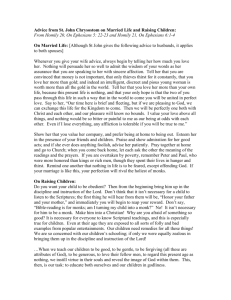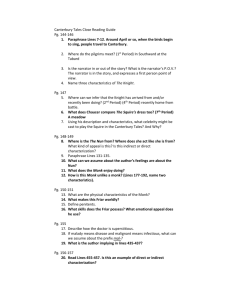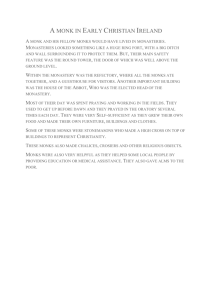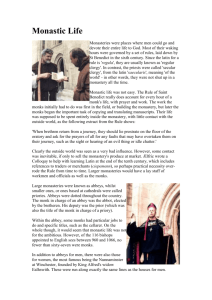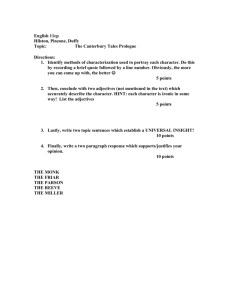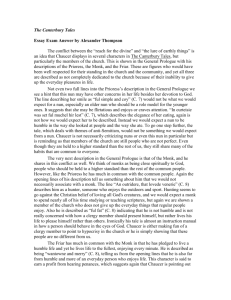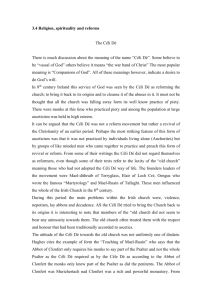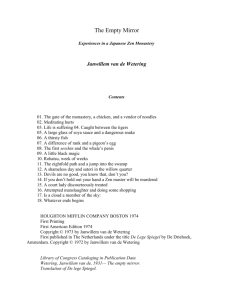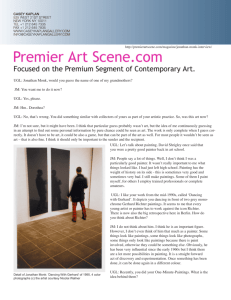Feudal Titles
advertisement
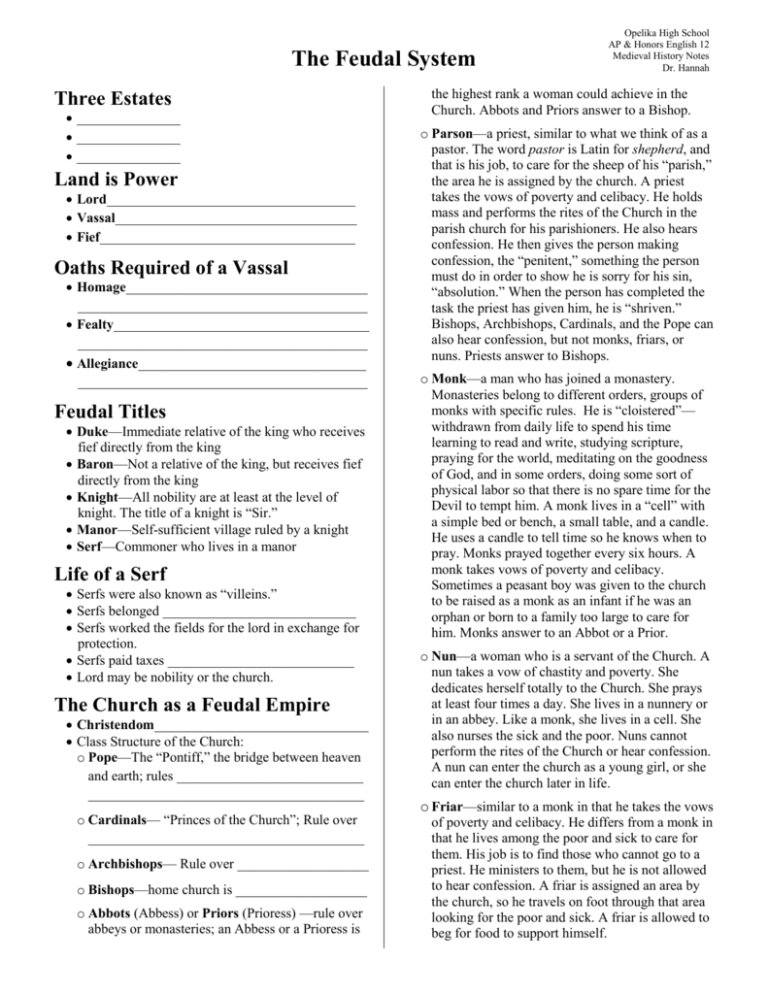
The Feudal System Three Estates _______________ _______________ _______________ Land is Power Lord____________________________________ Vassal___________________________________ Fief_____________________________________ Oaths Required of a Vassal Homage___________________________________ __________________________________________ Fealty_____________________________________ __________________________________________ Allegiance_________________________________ __________________________________________ Feudal Titles Duke—Immediate relative of the king who receives fief directly from the king Baron—Not a relative of the king, but receives fief directly from the king Knight—All nobility are at least at the level of knight. The title of a knight is “Sir.” Manor—Self-sufficient village ruled by a knight Serf—Commoner who lives in a manor Life of a Serf Serfs were also known as “villeins.” Serfs belonged ____________________________ Serfs worked the fields for the lord in exchange for protection. Serfs paid taxes ___________________________ Lord may be nobility or the church. The Church as a Feudal Empire Christendom_______________________________ Class Structure of the Church: o Pope—The “Pontiff,” the bridge between heaven and earth; rules ___________________________ ________________________________________ o Cardinals— “Princes of the Church”; Rule over ________________________________________ o Archbishops— Rule over ___________________ o Bishops—home church is ___________________ o Abbots (Abbess) or Priors (Prioress) —rule over abbeys or monasteries; an Abbess or a Prioress is Opelika High School AP & Honors English 12 Medieval History Notes Dr. Hannah the highest rank a woman could achieve in the Church. Abbots and Priors answer to a Bishop. o Parson—a priest, similar to what we think of as a pastor. The word pastor is Latin for shepherd, and that is his job, to care for the sheep of his “parish,” the area he is assigned by the church. A priest takes the vows of poverty and celibacy. He holds mass and performs the rites of the Church in the parish church for his parishioners. He also hears confession. He then gives the person making confession, the “penitent,” something the person must do in order to show he is sorry for his sin, “absolution.” When the person has completed the task the priest has given him, he is “shriven.” Bishops, Archbishops, Cardinals, and the Pope can also hear confession, but not monks, friars, or nuns. Priests answer to Bishops. o Monk—a man who has joined a monastery. Monasteries belong to different orders, groups of monks with specific rules. He is “cloistered”— withdrawn from daily life to spend his time learning to read and write, studying scripture, praying for the world, meditating on the goodness of God, and in some orders, doing some sort of physical labor so that there is no spare time for the Devil to tempt him. A monk lives in a “cell” with a simple bed or bench, a small table, and a candle. He uses a candle to tell time so he knows when to pray. Monks prayed together every six hours. A monk takes vows of poverty and celibacy. Sometimes a peasant boy was given to the church to be raised as a monk as an infant if he was an orphan or born to a family too large to care for him. Monks answer to an Abbot or a Prior. o Nun—a woman who is a servant of the Church. A nun takes a vow of chastity and poverty. She dedicates herself totally to the Church. She prays at least four times a day. She lives in a nunnery or in an abbey. Like a monk, she lives in a cell. She also nurses the sick and the poor. Nuns cannot perform the rites of the Church or hear confession. A nun can enter the church as a young girl, or she can enter the church later in life. o Friar—similar to a monk in that he takes the vows of poverty and celibacy. He differs from a monk in that he lives among the poor and sick to care for them. His job is to find those who cannot go to a priest. He ministers to them, but he is not allowed to hear confession. A friar is assigned an area by the church, so he travels on foot through that area looking for the poor and sick. A friar is allowed to beg for food to support himself.
